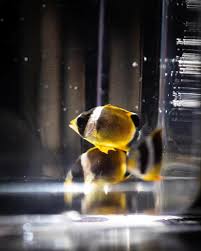
The life of an emperor in ancient China was one of extraordinary privilege and immense responsibility. Residing in grand imperial palaces, such as the Forbidden City in Beijing, the emperor’s life was shaped by elaborate rituals, strict social structures, and an ever-present sense of divine authority. As the ruler of the vast Chinese empire, the emperor was not merely a political figure; he was considered the “Son of Heaven,” a divine intermediary between the heavens and the earth. His life within the palace was therefore not just a reflection of his earthly rule but also a manifestation of his spiritual connection to the cosmos. This article delves into the life of an emperor within the grandiose confines of the imperial palace, exploring the rituals, responsibilities, and the significance of daily life behind the palace walls.
1. The Emperor’s Role: The Son of Heaven
The emperor was more than just the political leader of China. In the eyes of the people and the imperial court, he was seen as the “Son of Heaven,” a ruler chosen by the divine to maintain harmony between heaven and earth. This belief originated from the concept of the Mandate of Heaven (Tianming), which asserted that the emperor’s right to rule was granted by the heavens. The emperor’s role, therefore, was not only to govern the people but to maintain cosmic order and harmony.
Within the palace, this celestial connection was reinforced by numerous architectural elements, rituals, and daily practices. The emperor’s daily activities, decisions, and personal conduct were all viewed as having a direct influence on the wellbeing of the entire empire and its relationship with the heavens.
2. The Emperor’s Palace: A Symbol of Divine Authority
The emperor’s life within the palace was governed by strict codes of conduct and by the design of the palace itself. The most iconic example of Chinese imperial architecture is the Forbidden City in Beijing, a massive complex designed to embody the emperor’s supreme authority. With nearly 1,000 buildings, the Forbidden City was not only the emperor’s home but also the center of political and ceremonial life in China.
The palace was meticulously laid out along a central axis, symbolizing the emperor’s connection to the cosmos. It was divided into two main sections: the Outer Court, where official business was conducted, and the Inner Court, where the emperor resided with his family. The design of the Forbidden City was intended to reflect the emperor’s unique position as the ruler of both the empire and the universe, embodying his spiritual and earthly powers.
3. Daily Life in the Imperial Palace
While the life of an emperor may seem glamorous and filled with luxury, it was also dictated by strict routines, ceremonial duties, and the constant pressure of maintaining imperial power. The emperor’s daily schedule was highly regimented, with little room for personal indulgence. His activities were tightly bound by court rituals, family responsibilities, and the need to make crucial political and military decisions.
3.1. The Emperor’s Morning Rituals
The emperor’s day often began before dawn with a series of rituals designed to honor the heavens and the ancestors. Early morning prayers and sacrifices to the gods, ancestors, and celestial forces were essential to the emperor’s spiritual duties. This was meant to ensure that the emperor remained in harmony with the cosmos and could govern with wisdom and fairness.
The emperor also performed daily rites to express gratitude to the gods for their protection and to seek divine guidance for the empire’s governance. These rituals were considered fundamental for maintaining the Mandate of Heaven, as any failure in the emperor’s spiritual duties could be seen as a sign of the empire’s impending decline.
3.2. Political Affairs and Governance
Following the morning rituals, the emperor would move on to official duties. Political affairs were conducted in the Outer Court of the Forbidden City, where he would meet with ministers and advisors to discuss matters of state, such as military campaigns, economic policies, and imperial edicts. Although the emperor held ultimate authority, governance was often carried out through a complex bureaucracy, with officials from various departments managing the empire’s vast territories.
The emperor’s role in these affairs was more symbolic than practical. While he made final decisions, the day-to-day management of the empire was handled by trusted officials. However, the emperor’s approval was necessary for any significant decision or policy. In this way, the emperor’s life was deeply intertwined with the function of the state, and his leadership was seen as the foundation of imperial order.
4. The Emperor’s Personal Life: Family and Concubines
While the emperor’s primary role was political and ceremonial, his personal life within the palace was equally significant. The emperor’s family, particularly the empress, played a crucial role in maintaining the emperor’s image and securing his dynasty. In addition to the empress, the emperor had numerous concubines, many of whom held significant power within the court. The number of concubines an emperor could have was virtually unlimited, and their roles were not just for personal companionship but for political maneuvering as well.
4.1. The Empress
The empress was the highest-ranking woman in the palace and was often chosen from noble families to strengthen political alliances. She held a prestigious position in the emperor’s household and played a central role in the administration of the court. The empress was expected to provide the emperor with heirs, particularly sons, to secure the imperial lineage. Her role was both a personal and political one, as the strength of her family connections and the number of children she bore could impact the balance of power within the palace.
4.2. The Concubines and Harem Life
Beyond the empress, the emperor’s harem included countless concubines, many of whom were selected for their beauty, talents, and political connections. The emperor’s relationship with his concubines was often guided by personal preference, but the presence of concubines also had political implications. Some concubines held great influence in the court, and their families could wield considerable power, especially if they gave birth to sons who were seen as potential heirs to the throne.
Life in the imperial harem was highly competitive, with concubines vying for the emperor’s attention and favor. The competition for the emperor’s affection could lead to rivalry and intrigue, with factions forming around the most powerful concubines. This competition could be ruthless, and those who fell out of favor were often exiled or executed.
4.3. Children and Heir Selection
One of the emperor’s most important personal duties was to produce a male heir. The continuation of the imperial lineage was of utmost importance in Chinese society, and ensuring that the emperor had a son was a critical aspect of his life in the palace. The emperor’s children, particularly his sons, were raised in the palace under the watchful eye of the empress and other court officials. The emperor’s relationship with his children was often formal and distant, and their upbringing was focused on preparing them for leadership roles.
Selecting an heir was a delicate matter. While the emperor’s eldest son was usually the heir apparent, this was not always the case, as political considerations, personal favoritism, and the emperor’s wishes often played a role in the decision. The court could be a place of intrigue and competition as potential heirs vied for the emperor’s favor.
5. The Emperor’s Leisure and Entertainment
Although his life was dominated by political and ceremonial duties, the emperor also had moments of leisure and entertainment. These activities were not simply for relaxation; they also served as a way to reinforce the emperor’s authority, showcase his cultural refinement, and maintain his connection to his subjects.
5.1. Cultural Activities
The emperor was expected to be a patron of the arts, and many spent their leisure time enjoying music, poetry, and painting. The palace was filled with scholars, artists, and musicians who performed for the emperor, and his patronage of the arts was seen as a reflection of his wisdom and cultural superiority. The emperor’s ability to appreciate and support the arts demonstrated his connection to Chinese civilization’s long cultural traditions.
5.2. Hunting and Outdoor Activities
The emperor also engaged in outdoor activities such as hunting, which were both recreational and symbolic. Hunting expeditions were opportunities for the emperor to demonstrate his strength and courage, qualities that were essential for a ruler. It was also an occasion for the emperor to interact with his officials and maintain relationships with powerful figures in the court.
6. The Emperor’s Death and Succession
The life of an emperor was not without its end, and succession was always a major concern in the palace. The emperor’s death could lead to political upheaval, as rival factions within the court vied for power. Upon the emperor’s death, his body was typically preserved and buried with great ceremony, and the new emperor would immediately begin to assert his authority. The succession process was highly formalized and often accompanied by rituals that reaffirmed the legitimacy of the new ruler.
Conclusion: The Life of the Emperor as Divine Ruler
The life of an emperor in the palace was a blend of political, spiritual, and personal duties. The emperor was not simply a ruler but a figure whose authority extended beyond the earthly realm, touching on the divine. Every aspect of his life, from his daily rituals to his interactions with his family and court, was structured to reflect his unique position as the “Son of Heaven.” While life in the imperial palace may have seemed luxurious, it was also filled with pressure, responsibility, and the constant need to maintain harmony with the cosmos. The emperor’s life within the palace was a careful balancing act, designed to preserve the mandate of heaven and ensure the stability and prosperity of the empire.










